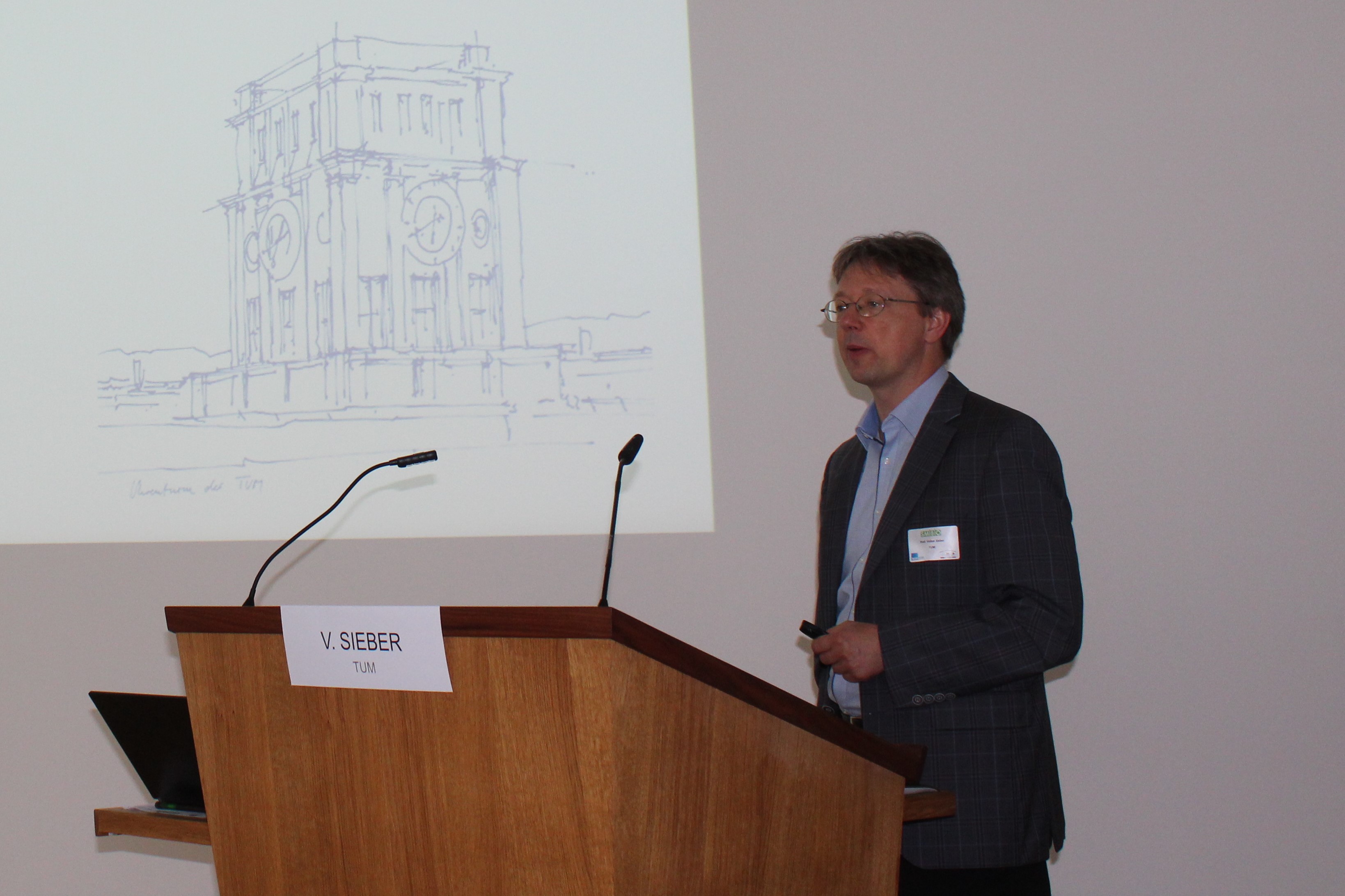Volker Sieber: Farmstead-Biorefinery – challenges and potential for local biobased chemical production

Volker Sieber (TUM CS, Germany) at the 4th SMIBIO Workshop
After the lunch break, Prof. Volker Sieber gave a presentation about the Farmstead-Biorefinery. He began with a short introduction about Straubing and its location in the so called Green Chemistry Belt along river Danube. Then he presented some facts about the Straubing Center of Science, in which he is the Chair of Chemistry of Biogenic Resources.
Volker Sieber presented then the so-called Farmstead Biorefinery, which is a grass silage biorefinery for rural areas that shall produce a sustainable supply of bulk chemicals by refining of agricultural biomass in modular sized farm-based biorefineries. The Farmstead Biorefinery is a modular concept, containing three modules that fit in one overseas container. While module 1 is for pulping, module 2 is for conversion processes and module 3 then for the product synthesis. The benefits of this concept are local, inexpensive small plants with a modular, flexible structure in which via (bio-)chemical cascade reactions new and innovative (bio-)catalytic processes can be carried out. The concept is capable of processing various substrates and independent of season and region. Via fermentative modification, gaseous olefins shall be produced and in micro reactors variable intermediates shall be converted. The Farmstead Biorefinery can provide different products with high energy density and shall be flexibly adaptable to commercial and political conditions. Mr. Sieber then showed the partners involved in the project and emphasized the interdisciplinary approach.
After that, he presented facts about grass silage, which might be an interesting feedstock because of the structural change towards less dairy production in many regions. With high annual biomass yields of on average 8 tdm/hectare, no direct competition to food and rarely used in industry the feedstock seems promising. However, the labile commercial and political framework (cross compliance etc.) might pose a challenge. In order to have a year-round available feedstock, the wet biomass must be air-tight compacted (i.e. silage in bales or in silos) which leads to a conservation due to anaerobic conditions and auto-fermentative acidification (pH ↓) in which the biomass is modified. The treatment allows simplified logistics and cost-efficient storage, enabling the required all-season availability. After revealing the composition of grass silage, Mr. Sieber presented the integrated biorefinery concept for grass silage, which contains a combined saccharification and downstream lignin extraction and a following biosynthesis of polyhydroxybutyrate from grass silage that can be used for the production of bioplastic products. Possible product applications are packaging (containers and films), hygiene articles (diaper), agricultural sector (encapsulation of fertilizers) or medical sector (sutures, repair patches, stents, bone scaffolds etc.).
Mr. Sieber concluded his presentation, pointing out that grass silage is nutrient-rich yet has a complex composition. If modified under anaerobic conditions the feedstock is storable. The wet biomass can be processed in local facilities and has a high potential as raw material for biorefineries. The developed biorefinery is a multi-product system with an integrated utilization of the raw material, using a combination of pulping methods to access to saccharides and lignin from grass silage. Via biotechnological conversion, bio-polymers and hydrocarbons can be produced. A realization of is concept would mean employment and (extra) profit for farmers in rural areas and would help to preserve urban-rural areas.



